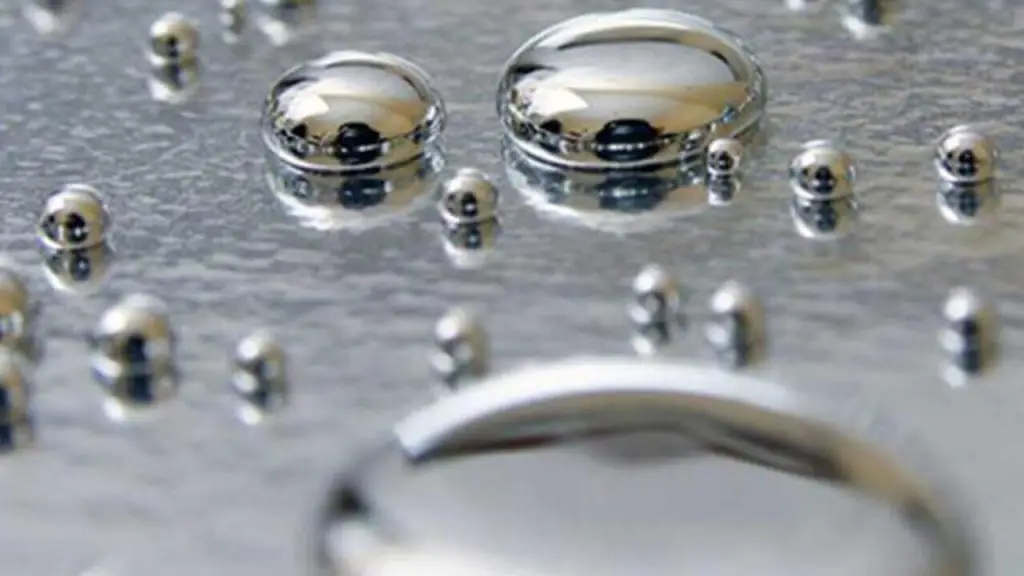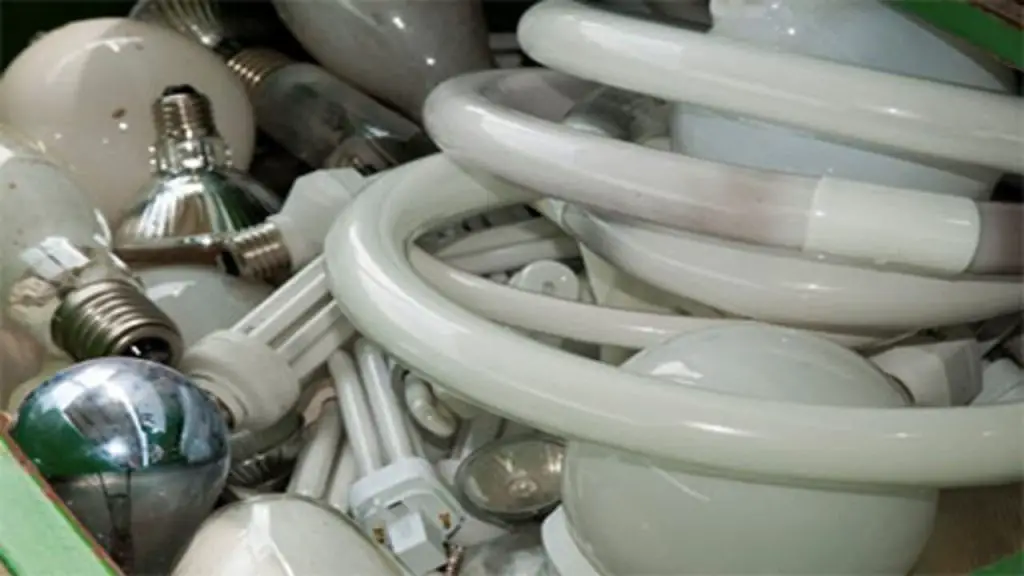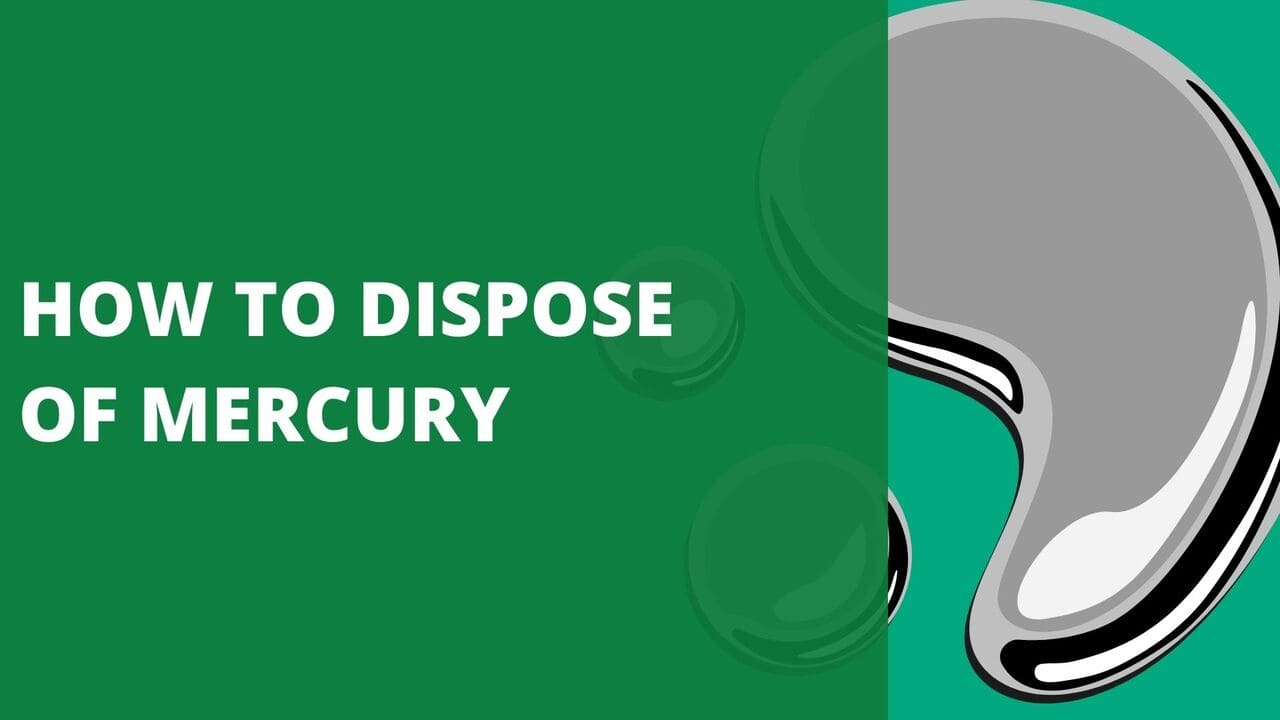As an Amazon Associate I earn from qualifying purchases.
Mercury, a fascinating silvery liquid metal known for its unique traits, brings not only wonder but also potential hazards to our environment and health if not handled and disposed of with care.
Recognizing the significance of proper mercury disposal becomes a crucial step in protecting both our well-being and the planet.
In this article, we will explore the importance of handling mercury correctly, the health issues it may lead to, factors to consider before getting rid of it, safe disposal methods, recycling choices, and services that assist in responsible mercury disposal.
But before we get into all that, let’s figure out why it’s so important to be careful when dealing with this interesting substance.
Why is it Important To Dispose of Mercury?

Properly getting rid of mercury is essential because this shiny liquid is fundamentally harmful. Mercury can enter our bodies through inhalation, ingestion, or even skin contact.
The importance of handling mercury carefully lies in its inherent toxicity, mainly due to its ability to bind to proteins and disrupt crucial cellular processes.
Inadequate disposal can lead to a chain of health issues, underscoring the urgent need for responsible handling.
Scientists worldwide have expressed concerns about the widespread use of mercury and its potential impacts on health and the environment.
Noteworthy statements include Dr. Philippe Grandjean, who emphasizes that “Mercury stands as one of the most toxic substances known, posing a serious threat to human health and the environment.”
1. Nervous System Damage
Mercury poses a serious threat to both the central and peripheral nervous systems. Its ability to interfere with cellular processes can result in symptoms such as tremors, weakness, and cognitive impairments.
The delicate balance of our nervous system is compromised in the presence of mercury, highlighting the urgency of proper disposal to prevent these debilitating effects.
2. Kidney Dysfunction
The kidneys, vital to our body’s filtration processes, become a target for mercury accumulation. Prolonged exposure can lead to kidney damage and impaired renal function.
Recognizing the risk to this essential organ underscores the importance of disposing of mercury responsibly to prevent detrimental effects on kidney health.
3. Developmental Issues in Children
One of the most worrying aspects is how mercury affects the developing neurological systems of children.
If a child is exposed during pregnancy or early childhood, it can hinder their typical development, leading to issues like learning disabilities, behavioural problems, and developmental delays.
These lasting consequences highlight the ethical responsibility to ensure the proper disposal of mercury, protecting the well-being of generations to come.
Can Mercury Lead to Cancer?
Currently, there’s no clear human evidence tying mercury exposure to cancer, but the available data are limited.
Studies with rats and mice exposed to very high doses of certain mercury forms have shown increased rates of various tumors.
Despite the International Agency for Research on Cancer (IARC) not definitively classifying mercury as a human carcinogen, there’s growing evidence indicating a possible link between mercury exposure and a higher risk of specific cancers, like kidney and lung cancer.
While the evidence is not extensive, some research has suggested a correlation between mercury exposure and the development of brain tumors.
Key Considerations Before Disposing of Mercury
Before you go ahead and dispose of mercury, there are a few crucial things you need to keep in mind to make sure you do it safely and effectively:
1. Type of Mercury
First off, know what kind of mercury you’re dealing with. There are different types, like elemental mercury, inorganic mercury compounds, and organic mercury compounds.
Each type might need a different way of getting rid of it because they have different properties and potential risks.
So, figuring out the specific type of mercury you have is the starting point to decide how to dispose of it properly.
2. Quantity of Mercury
How much mercury you have matters. If it’s just a small amount, like from a broken thermometer, you might handle it differently than if you have a larger quantity, perhaps from some industrial process.
The volume of mercury you’re dealing with is a big factor in choosing the right way to get rid of it. Matching the disposal method to the amount of mercury helps ensure you do it efficiently and safely.
3. Local Rules and Regulations
You’ve got to play by the local rules. Different places have different regulations when it comes to getting rid of hazardous materials like mercury.
Local authorities set these rules to protect people and the environment.
So, check out what your local regulations say about mercury disposal. It’s not just a legal thing; it’s a crucial step in making sure your disposal methods fit in with the broader efforts to keep communities and ecosystems safe.
Now that we’re aware of these considerations before getting rid of mercury, let’s look into safe and efficient methods for mercury disposal.
Safe and Effective Methods for Mercury Disposal

1. Household Hazardous Waste Collection Programs
Many municipalities take proactive steps to manage hazardous waste, organizing collection events or establishing designated facilities where residents can drop off mercury-containing items.
This often includes household items like thermometers, fluorescent bulbs, or certain electronic devices.
Utilizing these programs ensures that mercury is handled and disposed of in a controlled environment, minimizing the risk of environmental contamination and human exposure.
2. Mail-Back Programs
Some manufacturers and retailers offer convenient mail-back programs for specific mercury-containing products. This option is particularly beneficial for items like thermostats or fluorescent lamps.
Through these programs, individuals can securely package and return mercury-containing items through mail services, ensuring that the materials reach appropriate disposal facilities.
It provides a practical solution, especially for those who may not have immediate access to local hazardous waste collection points.
3. Specialized Hazardous Waste Disposal Companies
For larger quantities of mercury or situations with more complex disposal requirements, turning to specialized hazardous waste disposal companies is a prudent choice.
These companies have the expertise, equipment, and facilities to handle substantial amounts of mercury responsibly.
They adhere to strict environmental regulations and safety protocols, providing comprehensive solutions that align with legal requirements and ensure the utmost protection for both human health and the ecosystem.
The safe and effective disposal of mercury involves a range of methods tailored to different needs and quantities.
Whether through local household hazardous waste programs, convenient mail-back options, or the services of specialized disposal companies, the overarching goal is to manage mercury in a way that minimizes risks and contributes to a healthier, more sustainable environment.
Choosing the appropriate method depends on the nature and scale of the mercury disposal, but each option prioritizes safety, compliance, and environmental well-being.
Exploring Recycling Solutions for Mercury
When we talk about handling mercury, opting for recycling stands out as a sustainable and thoughtful choice instead of just getting rid of it.
There are plenty of programs and places specifically focused on the important job of taking mercury out of things like fluorescent bulbs and thermometers.
The goal isn’t simply to toss mercury away but to rescue it so that it can be used again or disposed of safely.
This approach falls in line with being mindful of the environment and making choices that are good for the planet.
1. Recovering Mercury from Products
Recycling initiatives focus on salvaging mercury from various products that contain it. This includes commonly used items like fluorescent bulbs and thermometers, where mercury is often a crucial component.
By doing so, these programs prevent the unnecessary release of mercury into the environment and tap into the potential for reusing this valuable material.
2. Reuse or Safe Disposal
After we’ve saved mercury from products, we can guide it in two helpful directions.
First, it can go back into making different things, which means we don’t need to dig up more mercury, lowering the impact on our environment.
Second, if reusing it doesn’t work out, we make sure to safely get rid of it, preventing any harm to nature or people.
This two-step plan ensures that we’re handling the lifecycle of mercury responsibly, promoting the idea of a circular economy—where we use resources wisely and keep them in a loop instead of constantly getting new ones.
3. Protecting Our Planet
When we choose to recycle mercury, we’re doing more than just managing a substance—we’re actively joining the bigger effort to protect the environment.
By making sure mercury doesn’t end up in landfills or get released in ways that could harm the surroundings, these recycling efforts are a key player in lessening the overall amount of mercury in our environment.
This decrease, in a domino effect, helps lower the risks and potential health issues connected to being exposed to mercury. It’s a way of contributing to the well-being of our planet and ourselves.
Exploring ways to recycle mercury goes beyond responsibly getting rid of it; it’s about reclaiming a valuable resource for reuse and making sure it’s disposed of safely.
When people and industries take part in these programs, they play a role in creating a more sustainable future.
This active involvement helps decrease the environmental impact of mercury, protecting both ecosystems and human well-being.
Services for Responsible Mercury Disposal
1. Cleanlites Recycling Inc. is a company dedicated to recycling hazardous waste, including mercury.
They provide various recycling services such as aerosol disposal, airbag recycling, and battery recycling.
Committed to environmental protection, Cleanlites follows EPA guidelines to ensure proper disposal of hazardous waste.
2. Earth911 specializes in helping people find local options for end-of-use products, including those containing mercury.
They maintain a directory of reuse, donation, and recycling locations, municipal curbside collection programs, and mail-in recycling options.
Earth911 also focuses on educating individuals, businesses, and communities about sustainable living.
3. Hazardous Waste Experts offers hazardous waste disposal services, including mercury disposal.
Their range of services includes hazardous waste transportation, environmental remediation, and emergency spill response.
Serving the entire United States, Hazardous Waste Experts can be reached by phone or email.
4. Stericycle is a medical waste disposal company that also handles mercury disposal. Their services encompass the disposal of biohazardous, pharmaceutical, sharps, and hazardous waste.
Stericycle goes beyond disposal, providing training and compliance solutions to keep businesses informed about regulations.
With over 15,000 employees globally, they prioritize safety, and sustainability, and have initiatives to reduce their environmental impact.
5. Veolia assists cities, industries, and communities in managing, recycling, and protecting critical resources, including mercury.
They offer solutions for minimizing climate impact, treating pollution, and optimizing resources.
Conclusion
To sum it up, disposing of mercury correctly is more than just about keeping ourselves and the environment safe—it’s a duty we owe to the generations to come.
When we grasp the health effects, follow essential guidelines, use safe disposal techniques, explore recycling alternatives, and make use of specialized services, we play a part in creating a healthier planet and a safer place for everyone to live.
FAQ’s:
How much mercury is toxic?
The toxicity of mercury depends on its form. In general, even small amounts of certain forms of mercury can be harmful.
The exact threshold varies, but it’s crucial to minimize exposure and adhere to recommended safety guidelines.
Does mercury react with plastic?
Yes, mercury can react with plastic. It’s essential to avoid using plastic containers for storing or transporting mercury, as it can permeate the plastic and cause contamination.
Instead, opt for containers made of materials resistant to mercury corrosion.
Does water remove mercury?
Water alone may not effectively remove mercury. Mercury doesn’t readily dissolve in water, and its removal often requires specific water treatment processes.
If there’s a concern about mercury contamination, it’s advisable to seek guidance from environmental experts or local authorities to address the situation appropriately.
Amazon and the Amazon logo are trademarks of Amazon.com, Inc, or its affiliates.

